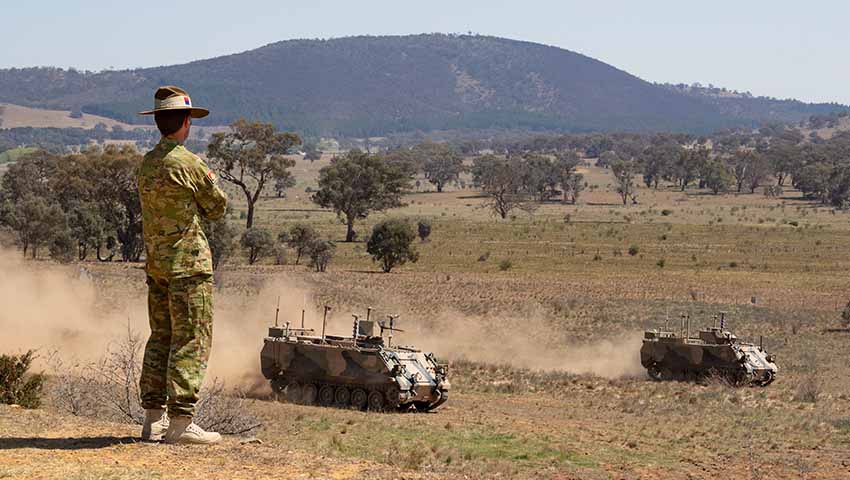Defence Minister Linda Reynolds and Defence Industry Minister Melissa Price have announced a $12.2 million investment into Australian industry designed to enhance the Australian Army’s experimentation, prototyping and exploration of autonomous vehicle and emerging technologies.
To continue reading the rest of this article, please log in.
Create free account to get unlimited news articles and more!
Minister Reynolds said the development of robotic and autonomous systems are central to meeting Australia’s future operational challenges, including humanitarian assistance and disaster relief, and combat operations.
"In the 2020 Force Structure Plan, I set out how Defence plans to seize these opportunities through greater development and implementation of robotic and autonomous systems," Minister Reynolds said.
The contracts will be delivered over the next three years and include:
- $7.7 million contract with BAE Systems Australia to convert 16 M113AS4 armoured personnel carriers into optionally crewed combat vehicles (OCCVs), increasing the OCCV fleet available to 20 vehicles and support experimentation over two years. Conversions will be conducted in South Australia by BAE and in regional Victoria by Defence’s Joint Logistic Unit (Victoria);
- $3.5 million contract with the Institute for Intelligent Research and Innovation (IISRI) at Deakin University for the expansion of Army’s leader-follower vehicle technology prototyping;
- $135,000 contract with QinetiQ Australia for the modelling of the value of conversion of a Bushmaster protected mobility vehicle to hybrid-electric drive; and
- $897,000 contract with EPE for small wheeled robots to experiment with human and machine teaming in reconnaissance roles.
Minister Reynolds added, "These technologies are ‘disruptive technologies’ that provide marked advantages on the modern battlefield by bolstering ADF capability while protecting Australian personnel."
Minister Price expanded on the comments by Minister Reynolds, saying the investment will boost robotic and autonomous vehicle studies and help to build opportunities for local defence companies.
"These are exciting times for developing world-class, cutting-edge technology right here in Australia. We are investing $12 million to boost Defence’s experience and understanding of new and emerging technologies in partnership with Australian industry and academia," Minister Price explained.
Army’s Robotic & Autonomous Systems Implementation & Coordination Office (RICO) was launched in March 2020 to explore, co-ordinate and develop concepts for disruptive technology in pursuit of its Robotic and Autonomous Systems Strategy (RAS).
Many of the emergent capabilities entering service over the next decade will be impacted by RAS technology. As such, Army should remain cognisant of how RAS technology can be inserted into new and legacy systems and how rapidly the technology will change.
According to the RAS, "Army should also start to experiment with and prototype emerging technology to appreciate the value that it may bring, how it may alter the way we fight and integrate; and most importantly to shape future procurement activity to generate a modern Army for the future joint operational environment."
There are five fields Army will seek to gain advantage and harness the range of technologies that are expected to emerge in the immediate and intermediate future:
- Maximising soldier performance through reducing their physical and cognitive loads;
- Improving decision-making at all levels;
- Generating mass and scalable effects through human-machine teaming;
- Protecting the force; and
- Efficiency.
Minister Price added, "There is a global increase in the use of these types of technologies and investments like these ensure both Defence and Australian industry are well positioned to take advantage and further develop these state-of-the-art technologies."
Stephen Kuper
Steve has an extensive career across government, defence industry and advocacy, having previously worked for cabinet ministers at both Federal and State levels.

 Login
Login








